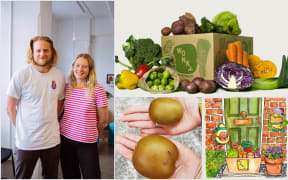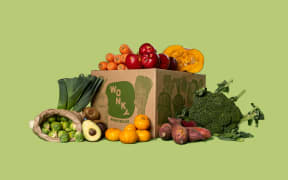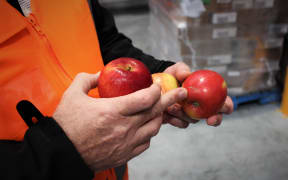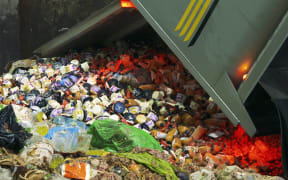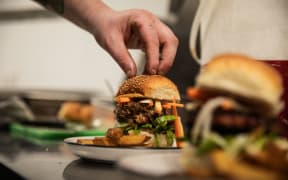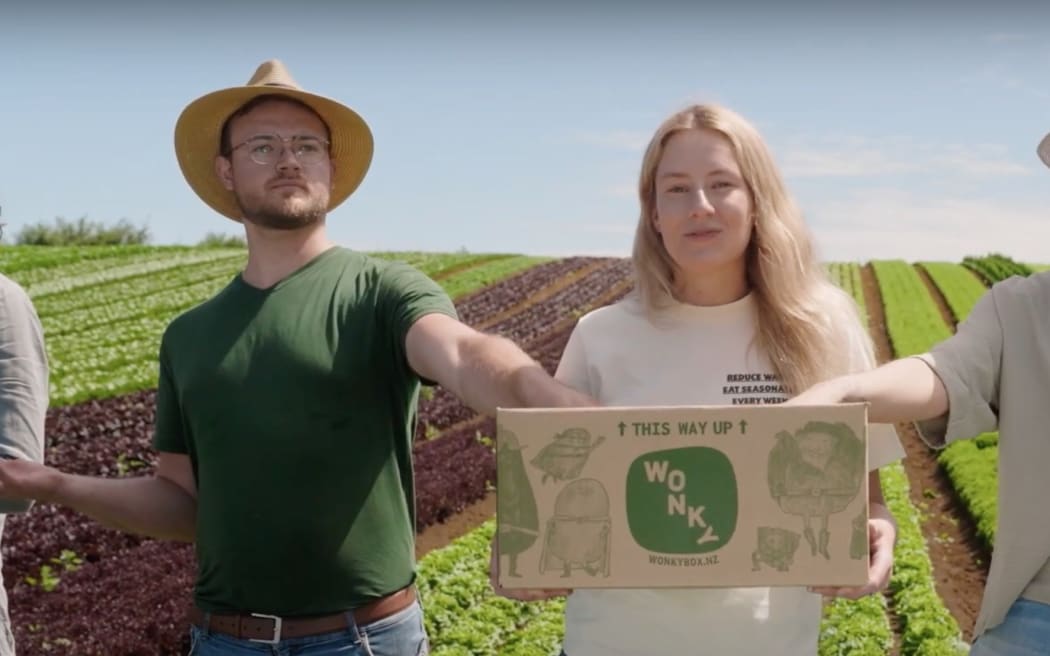
Wonky Box co-founders Angus Simms and Katie Jackson said their service would work well in the South Island. Photo: Supplied / Wonky Box
South Island growers may soon have a new way to sell their wonky or ugly fruit and vegetables rejected by the supermarkets.
Two-year-old business Wonky Box plans to expand its fresh produce delivery service from the North Island to a new outpost based out of Christchurch.
It follows the closure of online supermarket Supie this week, as the weight of the grocery duopoly pushes down on independent retailers.
During the two years of Wonky Box, it said it has diverted 1.9 million kilograms of cosmetically-challenged fresh produce from waste.
Co-founder Angus Simms said its business model would work well in the South Island, where it planned to enter very soon.
"We see the South Island as a really good opportunity.
"We're currently servicing the entire North Island, and in about a month's time we're entering the South Island.
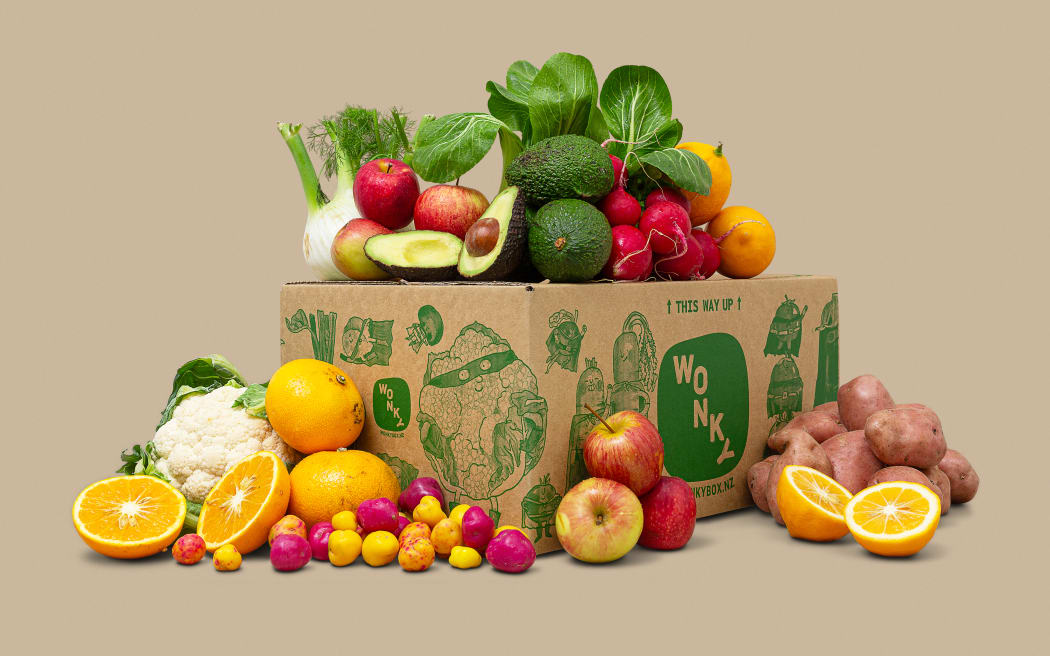
Wonky Box began two years ago offering fresh produce delivery. Photo: Supplied / Wonky Box / Sophie Louise Creative
"There are a lot of growers down there, yes albeit a smaller population, but arguably less competition in the South Island."
Simms said they had a depot lined up, and hoped it would be full operation by early 2024.
He said the next step was getting growers on board to give their rejected produce a new home - with good returns.
"The biggest setback would be for them to just simply mow it back into the fields, which is quite often what they do.
"One of the challenges we have as a business is actually convincing the growers that there is this flexibility on the produce cosmetics.
"They've been led to believe for decades and decades, generations, that the perfect produce is really the only produce they you can send out the gate, when in reality, we're surprising them - our suppliers - by showing them what consumers are actually a little more open to."
He said he was not surprised by the findings of a new Rabobank and charity KiwiHarvest study which found more New Zealanders would choose lower-priced imperfect fruit or vegetables over the more expensive regular-appearance produce.
It found New Zealand households were spending an average of $238 per week on food, a lift of 9 percent on a year ago.
While the report also found demand for home delivery meal kits was easing, Simms said sales of their subscription service were going strong because their model differed in how it kept produce in the value chain.
